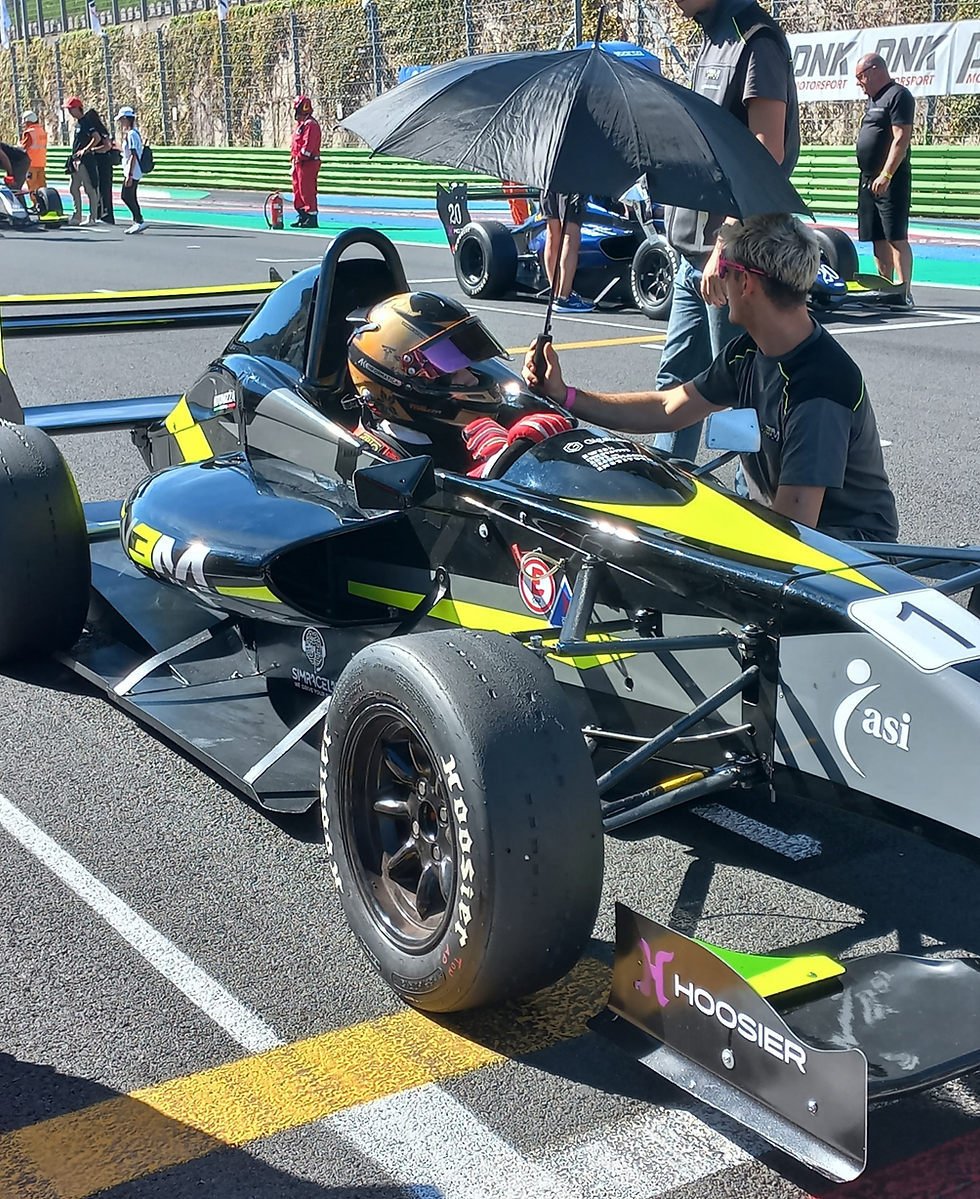And with this, the 2022 team principal silly season comes to an end
- Letizia Bizzotto

- Jan 30, 2023
- 4 min read
With the last announcement made on Thursday, the 2022 team principal silly season finally ends.
While it's common for F1 silly season to refer to driver transfers, this time it was the team principal’s that were casting as much chaos in few days as their drivers did in one season.
We put aside a crazy period for F1 which has seen unprecedented changes at the helm of four out of ten teams: the Ferrari saga, McLaren promotes from Stella, Seidl and Alunni Bravi to lead the Sauber-Audi transition, and Williams relying on Vowles.
First things first: Binotto out, Vasseur in
The Italian, who spent the last 27 years of his career with the Scuderia, resigned last November and was replaced by the Frenchman, who led Alfa Romeo to sixth in the Constructors’ Championship this year providing the team’s best finish in a decade.
Ferrari has a turbulent relationship with team principals, as a matter of fact it will be the sixth different principal in 15 years.
Although, for many it was a rash decision, for others it’s the right choice to finally unleash Charles’ potential as the couple worked together since junior formulas within Nicolas Todt’s ArtGP. On the other hand, Vasseur has earned significant respect for the job he has performed turning Alfa Romeo into a solid midfield team, but will this be enough to bring to the Rossa a Driver’s Championship in 2023?

Secondly, the well thought-out departure of Andrea Seidl from McLaren to Sauber
Here, one of the most well regarded TP in the paddock has the very clear objective of preparing Sauber for its transformation in Audi within 2026 whilst Sauber Group’s managing director, Alessandro Alunni Bravi, replaces Vasseur at the pitwall.
Unlike what they did with Vasseur who was both CEO and TP, the German car manufacturer opted for a change of course, splitting the roles: Seidl to lead the longest work cycle on the grid that will hopefully take Audi to win the first races in 2028, and Alunni Bravi to take the team boss’ responsibilities at Grands Prix.

The side effect of Seidl landing in Audi is Andrea Stella becoming the Italian pride in McLaren
The renowned English team with a glorious past and a to-be-written future, will be led by the Italian, a popular and highly-respected personality, inside and outside the paddock.
Stella’s F1 career started as a Performance Engineer for Ferrari in 2000, alongside Alonso and Raikkonen; he then joined McLaren as the Head of Race Operations firstly in 2015, then as Performance Director in 2018 and finally as Executive Racing Director in 2019.
Andrea is obviously rich in experience and seems to be the combination between a technical and managerial lead Zak Brown was searching for but, most importantly, he knows the team inside out: the solid advantage for McLaren to count on a TP that knows internal strength and weaknesses before the opponents is crucial and may lead McLaren to be the championship-runner they’re aiming to be.

Jost Capito leaves Williams
Ultimately, the departure of Jost Capito from Williams comes as unexpected after two years at the helm leaving a vacancy that raised speculations around it being a starting move to pave the way to Porsche willing to take over the Grove-based team as Audi is doing with Sauber. Who will be the chosen one? Nothing less than the man behind the now infamous team order ‘Valtteri, it's James' from 2018 Russian’s GP, Hamilton’s five championship-winning seasons, and Nico Rosberg’s title in 2016: James Vowles.
The highly qualified strategy director, has occupied key engineering and strategy roles with Brawn GP first and Mercedes then for a total of 20 years spent with Brackley-based teams. The hopes reside in the experienced head of strategy to put an end to the team’s unhappy loop of finishing at the bottom of the constructors’ championship in four out of the last five seasons.

Hype aside, the managerial implications of all this are as serious as ever.
Up to a few years ago, one of the key roles of a TP was to go to firms’ board, or car manufacturer, and try to extract the funding needed to get the proper job done.
Now, with the budget cap taking place, those days are long gone and F1 is no longer a spending competition where mistakes can be covered up with extra investments; instead, what matters is to be efficient, disciplined, and, above all, smart.
Performance these days does not come from bringing a new front wing upgrade at every race, because there’s simply no money allowed under the budget ceiling for that to happen.
A TP doesn’t recklessly unveil all upgrades early in the season to then leave the team without anything later, as the money runs out. Equally, not too cautiously to leave all developments for the latter stages of the season with the risk of leaving the car behind.
These are elements that only a canny and experienced TP, who is familiar with the macro process, can be expected to get right straight away.
The choice of Ferrari with Vasseur, and Sauber’s for the combo Seidl – Alunni Bravi, explains the tendency to go for senior management figures who are well aware about what's most needed: reliability, race strategy, and drivers mistakes alongside with many other variables have always been among the many things a TP must get right but, the cost cap, the new common theme, assigns TP’s accountability putting them at the very center of the game like never before.
Such added influence brings with it more responsibility than ever for whether or not ambitions made during winter testing have been achieved on track, which means extra glory when at the top, but closer to the firing line when at the bottom.






Comments